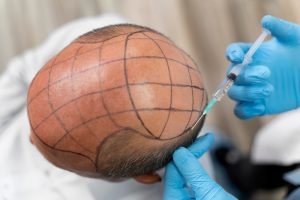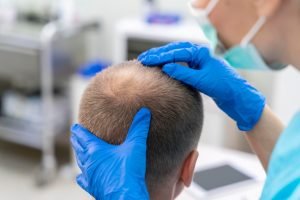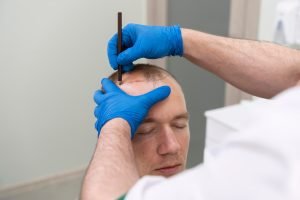Undergoing a hair transplant is a significant step in your journey to combat hair loss and achieve a fuller head of hair. While the thought of the procedure may evoke concerns about pain, it’s essential to understand that modern hair transplant techniques prioritize pain management to ensure a comfortable experience for patients.
The Importance of Pain Management
Pain management is of paramount importance in hair transplant surgeries. It not only contributes to the patient’s comfort but also plays a vital role in the healing process and overall satisfaction with the procedure.
Effective pain management allows patients to feel more relaxed during the surgery, reducing anxiety and ensuring a smoother process. It also contributes to a quicker recovery and minimizes discomfort in the recipient area after the transplant.
Preoperative Pain Management
Before the hair transplant procedure begins, your surgeon will discuss and administer preoperative pain management solutions. These may include:
- Local Anesthesia: The use of local anesthesia in the donor and recipient areas ensures that you won’t feel pain during the procedure. It numbs the scalp, making the surgery virtually painless.
- Anti-Anxiety Medications: To alleviate preoperative anxiety, your doctor may prescribe medications to help you relax before the surgery.
Pain Management During the Procedure
During the hair transplant procedure, the use of local anesthesia plays a crucial role in ensuring that you don’t experience pain. The surgeon will carefully administer anesthesia to numb the scalp, allowing them to perform the grafting process with minimal discomfort.
Postoperative Pain Management
After the hair transplant is complete, postoperative pain management is equally important to promote healing and reduce any discomfort. Patients may experience mild pain, soreness, or itching in the recipient area in the days following the procedure.
Your surgeon may recommend the following for postoperative pain management:
- Pain Relievers: Over-the-counter or prescription pain relievers can help alleviate any discomfort. Your surgeon will advise you on the appropriate medications and dosages.
- Anti-Inflammatory Medications: Inflammation is a common side effect after a hair transplant. Anti-inflammatory medications can help reduce swelling and discomfort.
- Antibiotics: To prevent infection, your surgeon may prescribe antibiotics. It’s essential to follow the prescribed course diligently.
Expectations and Healing
It’s important to set realistic expectations regarding pain during and after a hair transplant. While modern techniques prioritize pain management, some patients may still experience mild discomfort or itching in the recipient area.
However, any pain experienced is generally manageable and temporary. Most patients find that the discomfort diminishes within a few days to a week as the healing process progresses.
Consulting with a Hair Restoration Specialist
Consulting with a qualified hair restoration specialist is essential for a thorough understanding of the pain management options available to you. They will assess your specific needs, address any concerns, and provide you with a personalized pain management plan tailored to your comfort and well-being.
Rest assured that with the proper pain management techniques and the guidance of your surgeon, your hair transplant experience can be as comfortable as possible, allowing you to embark on your journey to a fuller head of hair with confidence.





